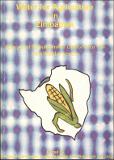| dc.contributor.author | Magadlela, Dumisani | |
| dc.coverage.spatial | Zimbabwe. | en |
| dc.date.accessioned | 2016-06-22T13:46:43Z | |
| dc.date.available | 2016-06-22T13:46:43Z | |
| dc.date.issued | 2000 | |
| dc.identifier.citation | Magadlela, D. (2000) Whose water right? A look at irrigators and catchment farmers' watered relations in Nyamaropa. In: Manzungu, E., Senzanje, A. and van der Zaag, P. (eds.) Water for agriculture in Zimbabwe: policy and management options for the smallholder sector, pp. 153-168. Harare: UZ Publications. | en |
| dc.identifier.isbn | 0-908307-63-2 | |
| dc.identifier.uri | https://opendocs.ids.ac.uk/opendocs/handle/20.500.12413/11771 | |
| dc.description | A research paper on the question of water rights for rural farmers in Zimbabwe. | en |
| dc.description.abstract | This chapter presents an analysis of farmers' relationships and perceptions of their situation with regards to access to water for irrigation purposes in the area surrounding and incorporating Nyamaropa Irrigation Scheme (see Figure 9.1). It looks at two groups of farmers who share the same source of water but have different legal entitlements to it. The chapter presents views of catchment farmers, upstream of Nyamaropa Irrigation Scheme, who use the Murozi water without formal water rights. They are accused of illegal water use by irrigators in the government-managed irrigation scheme who believe they have a legal claim to water because of a formal water right. Significantly the individual farmers in the scheme do not know the provisions of 'their' water right. This is because the irrigators, who do not hold title to land they cultivate, cannot apply for water rights in their individual capacity. Instead the District Administrator, in liason with the government Department of Agricultural, Technical and Extension Services (Agritex) apply for water rights on behalf of the irrigators. The whole episode revolves around who has a (more) legal claim to the water. While catchment farmers consider themselves to have a historical as well as traditional right to use the river's water, farmers in the irrigation scheme regard them as illegal irrigators who undertake irrigation in contravention of the law of the country, specifically the Water Act (1976) as enunciated in official documents (see GOZ, 1976; 1984). Differences in ways of accessing this important resource are at the centre of the analysis. | en |
| dc.description.sponsorship | Special thanks are due to the Netherlands Organization for International Cooperation in Higher Education (NUFFIC), The Hague, for providing financial support towards the hosting of the workshop upon which this book is based. NUFFIC also met part of the publication costs. | en |
| dc.language.iso | en | en |
| dc.publisher | University of Zimbabwe (UZ) Publications | en |
| dc.rights.uri | http://creativecommons.org/licenses/by-nc-nd/3.0/ | en |
| dc.subject | Rights | en |
| dc.subject | Rural Development | en |
| dc.subject | Water | en |
| dc.title | Whose water right? A look at irrigators and catchment farmers' watered relations in Nyamaropa | en |
| dc.type | Book chapter | en |
| dc.rights.holder | ©Emmanuel Manzungu, Aidan Senzanje, Pieter van der Zaag, 1999 | en |


